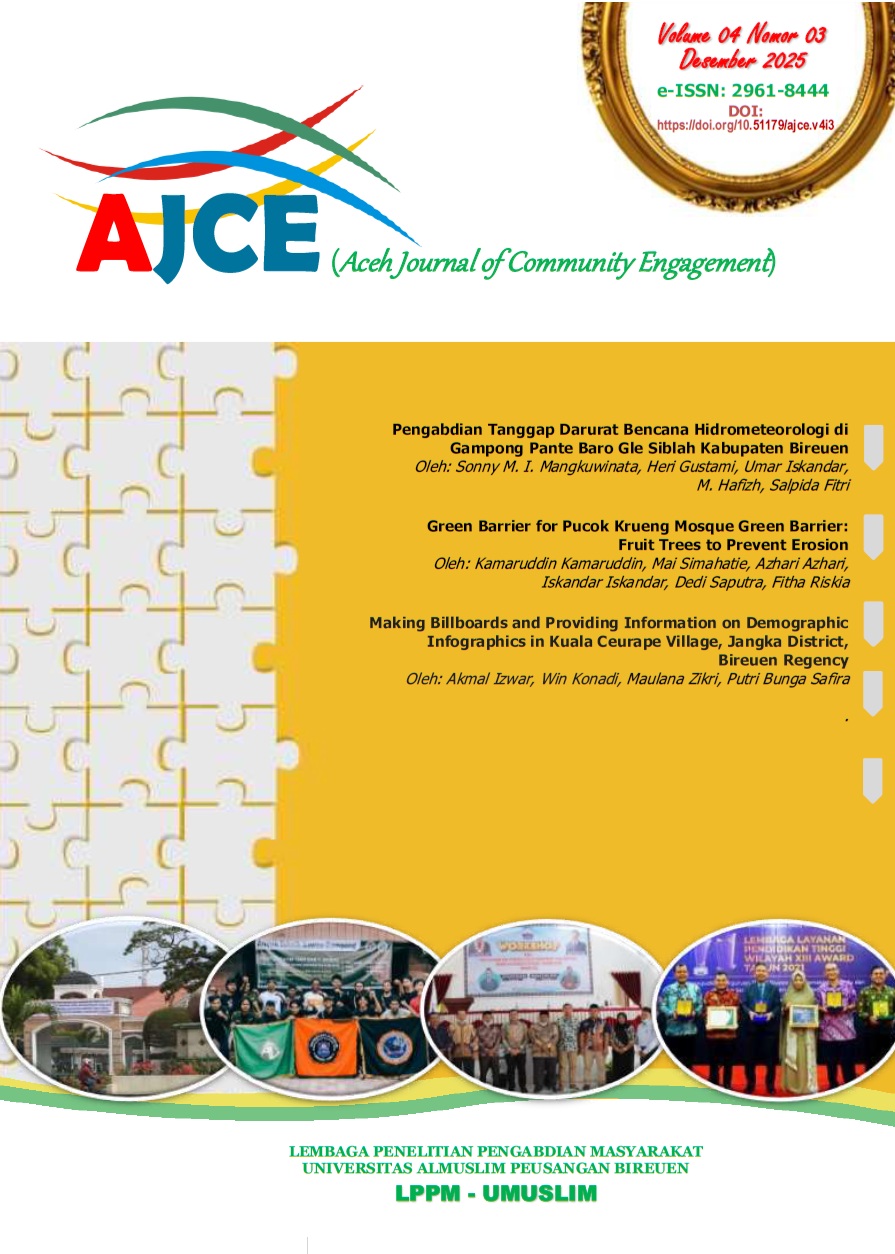
Aceh Journal of Community Engagement (AJCE). Is a national journal that contains the results of community service and empowerment activities in the form of the application of various fields of science, technology and social humanities published by the Institute for Community Service Research (LPPM Almuslim University). Published three times a year, namely: April, August and December.

Aceh Journal of Community Engagement (AJCE). This edition (Volume 4 Number 3, Dec 2025) contains 7 articles resulting from the service activities of PTN/PTS lecturers, teacher and students. Consist of; (1). Community Service for Hydrometeorological Disaster Emergency Response in Pante Baro Village, Gle Siblah, Bireuen Regency (Sonny, et al.), (2). Green Barrier for Pucok Krueng Mosque Green Barrier: Fruit Trees to Prevent Erosion (Kamaruddin, et al.) (3). Making Billboards and Providing Information on Demographic Infographics in Kuala Ceurape Village, Jangka District, Bireuen Regency (Akmal Izwar, et al.), (4). …
Alamat Redaksi : Kampus Universitas Almuslim
Jl. Almuslim No. 37, Matangglumpangdua, Bireuen-Aceh
Email: ajce.umuslim@gmail.com
Indeks AJCE - Aceh Journal of Community Engagement.
